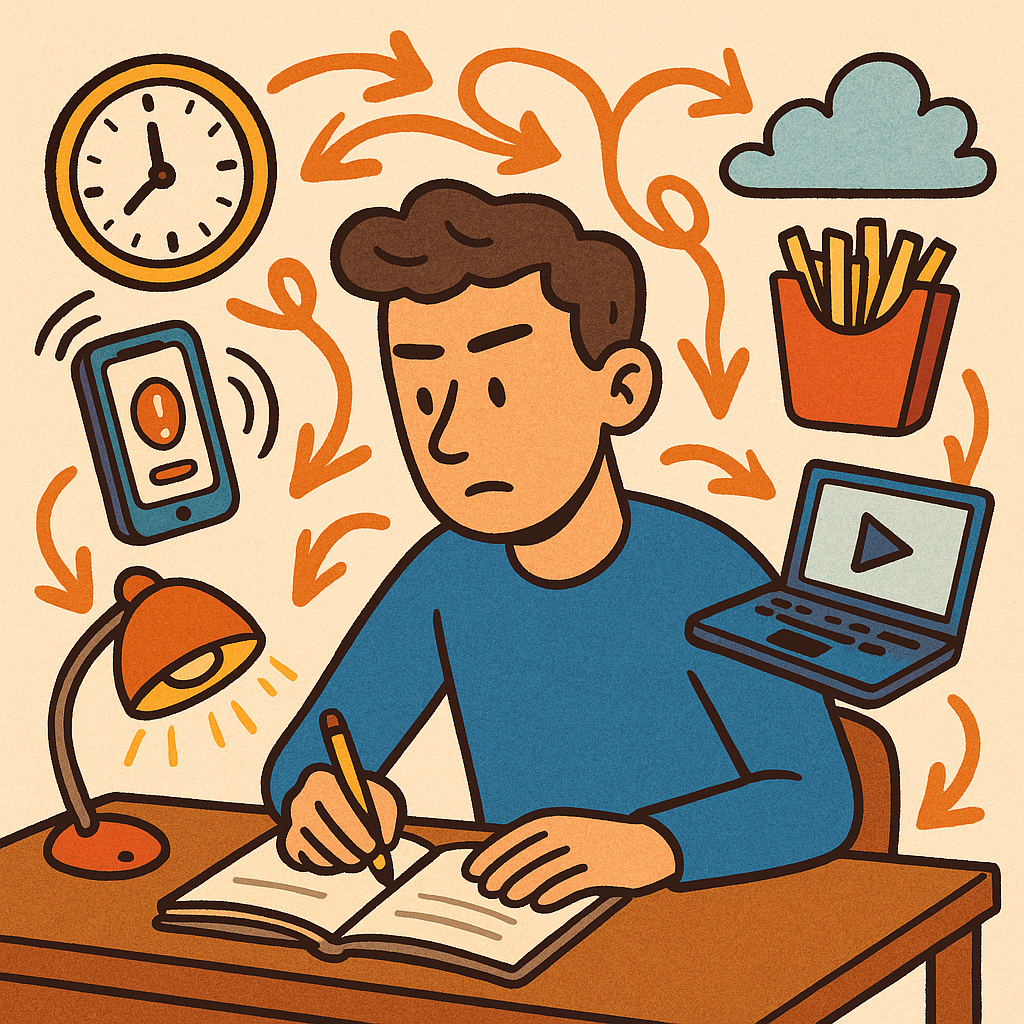Daily review routines aren’t just checklists—they’re mental frameworks shaping how we think, feel, and perform. In an age of distraction, more people rely on daily reviews to sharpen their focus, reduce stress, and build awareness. Let’s explore the psychology behind daily review routines, why they’re trending now, and how you can harness them for lasting impact.

Why the Psychology Behind Daily Review Routines Matters
1. Decision Fatigue and Mental Clarity
Every choice tires the brain. Structured review routines reduce decision fatigue by creating a consistent mental space—similar to habit-driven behavior. According to research, structured routines simplify our day, freeing cognitive energy for meaningful tasks.
2. Strengthening Metacognition
Daily reflection exercises tap into metacognition: thinking about how we think. This self-awareness—planning, monitoring, and evaluating—improves learning, stress management, and performance . The psychology behind daily review routines emphasizes tracking progress and adjusting behaviors: key ways we regulate our cognitive processes.
Emerging Trends in Daily Review Routines
a. Micro‑reviews for Mental Wellness
Driven by mindfulness-based stress reduction (MBSR), micro-reviews like 5-minute check-ins help people combat stress and anxiety. MBSR research shows brief, mindful daily reflections calm the mind and anchor our focus.
b. Digital Prompts & AI-Powered Tools
Apps like Routinery and journaling platforms use prompts and reminders to support structured daily reviews. This tech meets users where they are—on their phones—making consistent reflection easier.
c. “Awe” Moments in Reflection
Adding awe—moments that inspire wonder or gratitude—into reviews boosts emotional well-being. UC Berkeley’s Dacher Keltner integrates awe into routine, effectively increasing positivity and connection.
Guide: Building Your Daily Review Routine
Want to implement a psychologically sound daily review? Here’s a structured, step-by-step guide—easy to follow and enriched by science-backed strategies:
Step 1: Choose Your Time & Place
Pick a consistent window—morning’s calm or evening’s wind-down—for a 5–15 minute review session.
Step 2: Use Structured Prompts
To boost the psychology behind daily review routines, include prompts like:
- What went well?
- What challenged me?
- What will I do tomorrow?
Prompts help shape metacognitive thinking, ensuring you evaluate and plan effectively.
Step 3: Combine Primary & Secondary Routines
Incorporate both essentials (sleep, meals, hygiene) and aspirational routines (learning, exercise). Primary routines anchor stability; secondary routines fuel growth.
Step 4: Add a Mindful or Awe‑filled Element
Spend a moment savoring something—nature, gratitude, creativity. These micro-moments elevate mood and reinforce emotional resilience .
Step 5: Track Progress
Maintain a simple log or app: dates, successes, missteps, adjustments. Consistent data encourages growth and highlights patterns, just as diary studies show .
Step 6: Reflect and Iterate Weekly
Review your reviews every Sunday. Look for trends—energy slumps, recurring challenges—and tweak as needed for the upcoming week.
Real Benefits Explained by Psychology
Stress Reduction & Emotional Stability
Daily routines—especially those combining primary and secondary actions—help buffer stress and stabilize mood.
Better Sleep and Mental Health
Routine bedtimes and reviews cue the brain for rest, supporting healthy sleep cycles—linked to better mental resilience .
Boosted Productivity & Focus
Structured reviews improve time management by minimizing decision fatigue and clarifying priorities.
Metacognitive Growth
Through daily reflection, you detect thought patterns, learn strategies, and self-adjust—critical components of metacognitive strength.
Quick Tips to Stay Committed
- Keep it short. Five minutes is enough.
- Automate reminders. Calendar alerts ease consistency.
- Use prompts. They structure your review and guide thinking.
- Be flexible. Adjust when life gets chaotic—routine boosts, not bounds.
- Celebrate wins. Even small progress is data worth noting.
Troubleshooting Common Hurdles
| Challenge | Fix |
|---|---|
| Losing routine | Anchor to daily cues—coffee, lunch, sunset. |
| Boring format | Change prompts or app weekly. |
| Self-criticism | Approach gently. Highlight wins before next-day planning. |
| Overwhelm | Scale back: shorter sessions, fewer prompts. |
In Summary
The psychology behind daily review routines reveals they’re more than disciplines—they’re mental tools. They reduce stress, sharpen cognition, enhance metacognition, and support productivity. Supported by research in habit formation, mindfulness, and cognitive science, these routines provide structure in turbulent times. Whether you’re tech-savvy with an app or pen-and-paper purist, a minimal daily review can transform how you navigate life—one reflection at a time.
References
Psychology Today (2017). How Daily Reflection Empowers Healthy Habits. Available at: https://www.psychologytoday.com(accessed 2025).
Pennebaker, J. W., & Seagal, J. D. (1999). “Forming a daily habit of writing: impacts on stress, immune function, and mental well‑being.” Journal of the American Medical Association.
Retrieved from https://www.vox.com(Published 1999)
PMC (2019). The importance of creating habits and routine. PMCID: PMC6378489. Available at: https://pmc.ncbi.nlm.nih.gov(accessed 2025).






